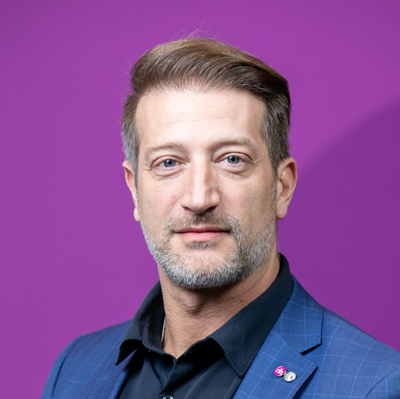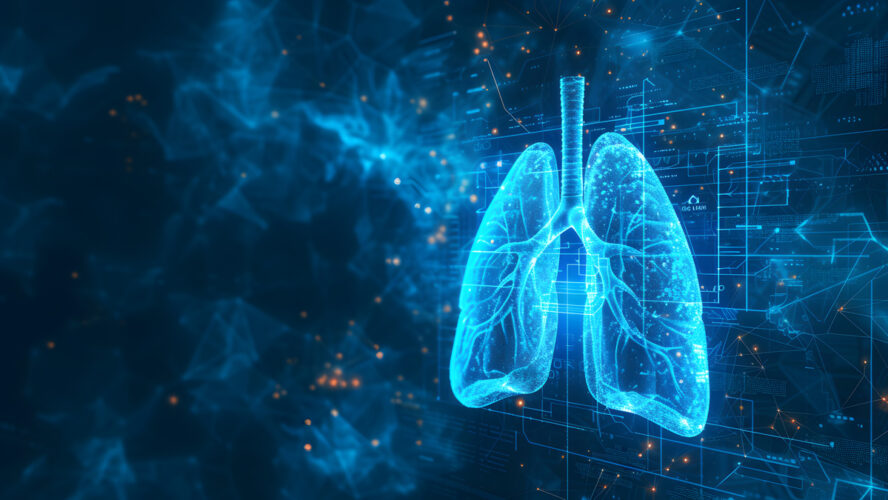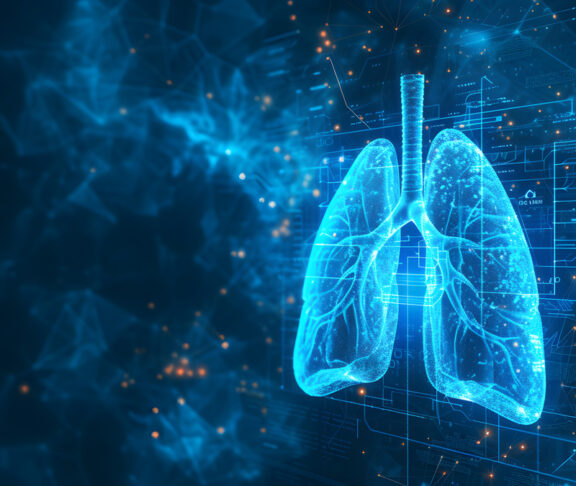
Niccolo Stefani
Business Leader, Population Health & Clinical AI, DeepHealth
This article is based on an interview with Niccolo Stefani
Lung cancer is the leading cause of cancer deaths, often detected too late for effective treatment. Early detection, however, can transform outcomes and improve survival.
While low-dose CT scans have long offered the potential to detect lung cancer at earlier stages, the complexity and time required to analyse these scans have historically been a major barrier to scaling population-level programmes. Artificial intelligence (AI) is changing that equation, and the UK’s groundbreaking lung screening initiative stands out as a leading example.
AI-powered screening is a win for providers and patients
The NHS England’s Lung Cancer Screening Programme offers comprehensive screening to people aged 55–74 with a history of smoking or other risk factors. To deliver on this ambitious programme, the NHS is harnessing AI-powered imaging tools delivered by DeepHealth, a global leader in health informatics. The AI automatically detects, characterises and tracks lung nodules in CT scans, enabling radiologists to work with greater confidence and efficiency. According to a peer-reviewed study by Hempel et al., radiologists using it can interpret scans up to 42% faster.
UK Government data show that 76% of cancers detected in the NHS programme were identified at earlier stages (I and II) compared to just 29% historically.1 Earlier detection means more treatment options and an increased chance of long-term survival. The tool also calculates growth rates and doubling times, providing valuable insights into whether a nodule may be malignant and guiding next steps in diagnosis or treatment.
Relieving pressure on a stretched workforce
The Royal College of Radiologists has warned of a significant workforce shortage, with thousands more radiologists needed across the NHS to meet demand. By automating time-consuming elements of image interpretation and standardising reporting, AI helps radiologists process more CT scans faster.
Dr Katharine Johnson, Consultant Radiologist at Salisbury NHS Foundation Trust, notes that the technology has reduced her chest CT review time by about 50%. “The volumetry is also fantastic,” she explains. “It saves me from manually performing the analysis. Ultimately, a much more robust nodule follow up — in half the time.”
By embedding AI into clinical and
operational workflows, health
systems can do more than treat
disease; they can anticipate it.
Seamless integration, high standards
Ease of adoption has been another critical factor in the programme’s success. The AI runs automatically in the background and integrates seamlessly with existing IT systems. CT images are analysed automatically, and results appear in structured reports — without additional work for radiologists. In addition to being CE-certified, it meets relevant requirements for data privacy and security, including GDPR and national requirements.
Scaling across Europe and beyond
DeepHealth’s lung AI is being used for more than 90% of NHS England’s lung screening sites, and the success of AI within the NHS programme has sparked interest across Europe. Large-scale AI-powered screening initiatives, like the NHS Lung Cancer Screening Programme, show how the future of UK cancer care could shift from analogue to digital, hospital to community and sickness to prevention.
Reimagining population health for tomorrow
In addition to lung health, DeepHealth’s clinical AI portfolio extends across breast, prostate, brain and thyroid health. Their software is used at hundreds of clinical sites globally, managing millions of patient exams.
“Our vision goes beyond individual diagnoses to a larger population health model,” says Dr Niccolo Stefani, Business Leader for Population Health & Clinical AI. “It’s about connecting imaging, data and workflows to proactively detect disease, improve survival and reduce the economic and human toll of illness.”
By embedding AI into clinical and operational workflows, health systems can do more than treat disease; they can anticipate it. The NHS Lung Cancer Screening Programme shows what’s possible: earlier disease detection, better patient outcomes and greater efficiency for healthcare systems.
The imaging AI is manufactured as Veye Lung Nodules by Aidence BV for DeepHealth.
[1] Mouland, S. et al. 2024. Targeted Lung Health Check Programme: Final evaluation report.



